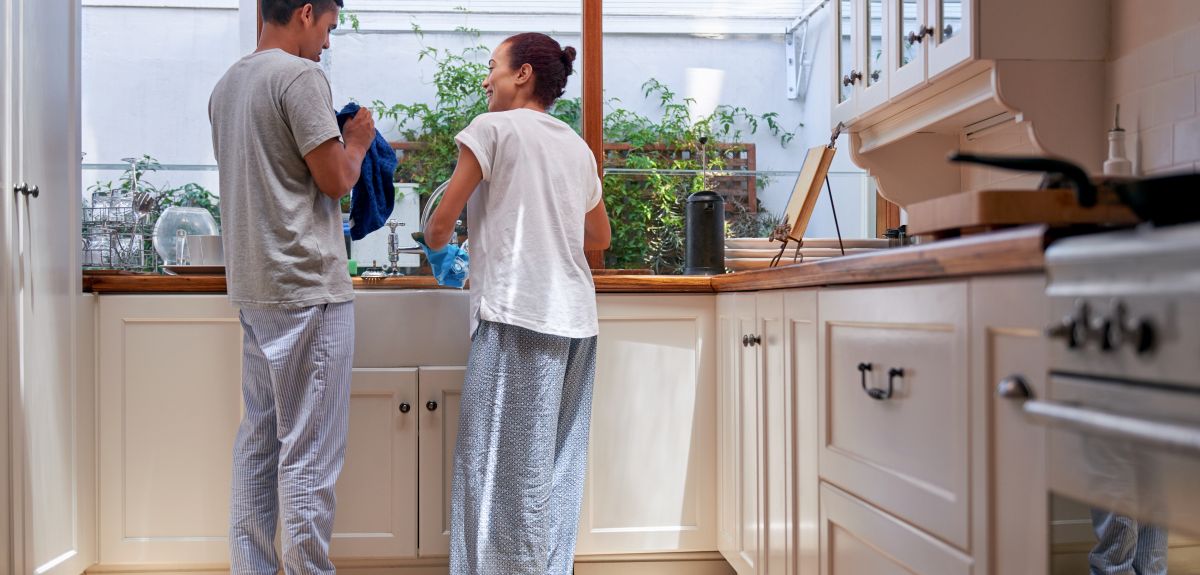
Who does most of the housework in multicultural Britain?
The first ever nationally representative study has looked at how housework is organised by couples across different ethnic groups in Britain. It finds that Black Caribbean men have the least traditional attitudes to gender roles and get stuck into the household chores.
Meanwhile, Indian men report taking on a fairer share of routine housework than white British men – even though Indian, Pakistani and Bangladeshi women report spending significantly more time on housework than white British women.
The study by the University of Oxford and the University of Essex examined the attitudes and behaviours of almost 30,000 cohabiting or married couples taking part in the UK’s household panel study, Understanding Society.
Co-author Dr Man-Yee Kan, Associate Professor at the Department of Sociology, said: ‘Previous research in the UK has been focussed on the white majority population. Our results have challenged the widespread assumption that the British white population must be more egalitarian and liberal in their gender attitudes and household division of labour than ethnic minority groups.’
Our results have challenged the widespread assumption that the British white population must be more egalitarian and liberal in their gender attitudes...than ethnic minority groups.
Dr Man-Yee Kan, Associate Professor at the Department of Sociology
The data provides a detailed picture of how much time couples spend on routine housework and their attitudes to men’s and women’s roles within the household and in employment .The researchers were able to see how education levels, employment status, socio-economic background and ethnicity played a part in determining how British couples divide up chores.
In all groups women spend significantly more hours on housework than men – taking on an average share of 70% of the chores in the home, such as cooking and cleaning. Women who have a degree and those in paid employment do a significantly lower share than those without jobs or without higher level qualifications; but there was considerable variation by ethnic background.
Education was important for both men and women: Indian and Bangladeshi men with a degree were found to do more housework than those without. Indian and Chinese women with a degree appeared to get more help from their spouse than non-graduates.
Men spent less than half the hours, on average, than women on housework each week. Men reported a mean of six hours a week compared with a mean of 14 hours a week for women. Reports from Pakistani men, however, suggest they spent the least time of all groups doing housework. Pakistani and Bangladeshi women report spending almost 24 hours a week, on average, on housework. Once other factors such as education, whether in paid employment, and whether a first or second generation immigrant are taken into account, they were found to do between three to five hours more a week compared with white British women.
The project, Understanding Society, is an initiative funded by the Economic and Social Research Council and various UK Government departments.
The working paper, Gender, ethnicity and household labour in married and cohabiting couples in the UK, can be viewed here.
 Statins do not cause the majority of side effects listed in package leaflets
Statins do not cause the majority of side effects listed in package leaflets